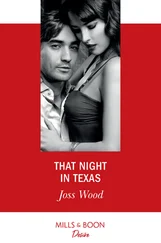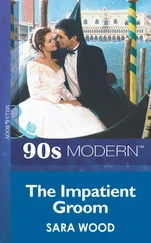J. Powers - Wheat That Springeth Green
Здесь есть возможность читать онлайн «J. Powers - Wheat That Springeth Green» весь текст электронной книги совершенно бесплатно (целиком полную версию без сокращений). В некоторых случаях можно слушать аудио, скачать через торрент в формате fb2 и присутствует краткое содержание. Год выпуска: 2000, Издательство: NYRB Classics, Жанр: Современная проза, на английском языке. Описание произведения, (предисловие) а так же отзывы посетителей доступны на портале библиотеки ЛибКат.
- Название:Wheat That Springeth Green
- Автор:
- Издательство:NYRB Classics
- Жанр:
- Год:2000
- ISBN:нет данных
- Рейтинг книги:5 / 5. Голосов: 1
-
Избранное:Добавить в избранное
- Отзывы:
-
Ваша оценка:
- 100
- 1
- 2
- 3
- 4
- 5
Wheat That Springeth Green: краткое содержание, описание и аннотация
Предлагаем к чтению аннотацию, описание, краткое содержание или предисловие (зависит от того, что написал сам автор книги «Wheat That Springeth Green»). Если вы не нашли необходимую информацию о книге — напишите в комментариях, мы постараемся отыскать её.
Wheat That Springeth Green — читать онлайн бесплатно полную книгу (весь текст) целиком
Ниже представлен текст книги, разбитый по страницам. Система сохранения места последней прочитанной страницы, позволяет с удобством читать онлайн бесплатно книгу «Wheat That Springeth Green», без необходимости каждый раз заново искать на чём Вы остановились. Поставьте закладку, и сможете в любой момент перейти на страницу, на которой закончили чтение.
Интервал:
Закладка:
So Joe and some others, in quest of holiness, had gone into spiritual training, which had its physical side. “Detachment!” the retreatmaster had cried, and they gave up their attachments — smokes, sweets, snacks, snooker, and handball were Joe’s — and haunted the chapel. They were a dozen or so in number, kneeling in prayer and meditation by the hour, some, though, sitting from time to time — Mooney and Rooney, for example; not Joe, though, and not Cooney, and not Hrdlicka. But the way of the world is also the way of the seminary, and the number of those who kept vigil in the chapel, kneeling or sitting, daily diminished — down to five only a week after the retreat.
The five of them — Joe, Cooney, Hrdlicka, Mooney, and Rooney — came in for a lot of headshaking from their peers, were called quietists, “detachers,” and so on (only to be expected if you knew anything about the history of the Church, the intramural dogfights between ascetics and timeservers), and were also a source of concern to some of the high-living faculty and the Rector. It was believed that the Rector enjoyed the favor of the Archbishop but not of his reverend consultors, who remembered their days in the seminary and were unhappy about the way the place was being run now — as a club, they said. So the ingredients were there, at the seminary and close by, for trouble — which Joe did all he could to avoid.
He counseled the members of the little band (they seemed to regard him as their spiritual director) to use their heaven-sent opportunities, which were many, to turn the other cheek. And he gave good example whenever he could, as when he was called “Holy Joe” or just “Holy.” (“Hi, Holy!” Deadass Boekenhoff greeted him every morning in the lavatorium, and Joe, though tempted to answer something else, would murmur politely, “Good morning, George.”) But not all members of the little band did so well. Mooney and Rooney, who were both sorry later but cited St Peter’s bad example in the Garden of Gethsemane in extenuation of themselves, had exchanged sharp words and shoves with their persecutors. Mooney and Rooney had also fallen behind in their studies, as had Hrdlicka, owing to the hours they spent in the chapel. The three of them had to be tutored by Joe and Cooney, who were excellent students, and Mooney and Rooney were now keeping up. Things still looked bad for Hrdlicka scholastically— he , however, was making great progress spiritually. There were times in the chapel when Hrdlicka appeared to Joe to be out of this world, in a state of mystical ecstasy, reminding Joe of an old picture of St Aloysius with halo, lily, scourge, and upturned eyes.
And then, one evening early in December, Hrdlicka came to Joe’s room and said, “I’m thinking of leaving the sem.”
“ What! ”
“For the Trappists.”
“Oh,” said Joe, less gratified than relieved. “That’s different , Al. That makes sense in your case. Well, well. The Trappists. Pretty quiet about it, weren’t you?”
“I didn’t know if I’d get a reply when I wrote. That’s why I didn’t say anything.”
Hrdlicka handed Joe the reply from the Trappists, and Joe read it, surprised to see that they had a typewriter. “So now you need a letter of recommendation from the Rector, Al. Told him yet?”
“Not yet, Joe. I thought I’d tell you first.”
This pleased Joe, as spiritual director of the little band, but, mindful of higher authority, which he knew from his reading was where so many good men had gone wrong, he said, “Better tell the Rector, Al. Tell him right away.”
Hrdlicka went off to do this, but he soon returned — so soon that Joe assumed the Rector was out. Then he saw what Hrdlicka had in his hand — the hair shirt.
“Joe, he says I should think it over for two weeks. He’ll give me a letter of recommendation then, if I haven’t changed my mind. Says in the meantime I can wear this.”
Joe felt the hair shirt, as he hadn’t that evening in the Rector’s study, first with his fingers, then with the back of his hand, and said, “Whew!”
“Joe, I think the Rector figures I wear it I’ll change my mind.”
“You won’t,” said Joe, and he was right.
A few days before Christmas, on a Wednesday afternoon (Wednesday afternoons were “free” at the seminary), Hrdlicka departed for the Trappists with a letter of recommendation from the Rector and also with the hair shirt — a going-away present from the Rector. Joe accompanied him to the railroad station.
Since they were there early, Joe having hailed a cab while they were waiting for a bus, they sat down and talked. Presently, Joe was asking Hrdlicka for the hair shirt! He said there would be God’s plenty of such where Hrdlicka was going. Hrdlicka was willing in principle to oblige Joe but not in fact, because he was wearing the shirt. (Joe had thought it was in Hrdlicka’s suitcase.) Joe agreed that it might be awkward for Hrdlicka as a novice, even before he took the vow of silence, to ask the Trappists to mail the hair shirt to a friend, but neither Joe nor Hrdlicka liked the idea of just giving up. Then “Hey!” cried Joe, and told Hrdlicka his plan. They went to the men’s room, into adjoining stalls, where they undressed from the waist up, and Hrdlicka passed the hair shirt over the top of the partition to Joe.
That was how Joe got the hair shirt. The only bad thing — something that made Joe ashamed of himself when he thought of Thomas à Becket — was that he’d succumbed to fastidiousness in the stall, and had emerged from it with the hair shirt in a pocket of his overcoat, and had then deceived the simple Hrdlicka by squirming and saying, “Whew!”
For his penance, Joe had walked back to the seminary, three miles against a north wind, ears freezing all the way, save for a minute or two in a little grocery where he stopped to purchase a box of Rinso.
Wearing the hair shirt was like coming from a really careless barber and being pricked by clippings on a hot summer day, only much worse, and so Joe, being human and not a masochist, was glad when he could take the thing off. This he did at night, hand-washing it in the utility room — too much traffic in the lavatorium — and leaving it to dry on his radiator, over a towel, as he would a woollen sweater.
As a discomforter of the flesh and a strengthener of the spirit, the hair shirt probably did the job, but Joe was still where he’d been before with respect to growth in holiness — still stuck in the first stage of his hoped-for spiritual evolution, in the purgative “way”—and was afraid he’d never enter the contemplative way, not to mention the unitive. The little appetizers of spiritual delight that Joe had read were not infrequently vouchsafed to the beginner — though they were not to be mistaken for the banquet itself, for they would soon be withdrawn — were not vouchsafed to him. He wasn’t giving up, though. He was still in there — in the chapel for hours every day, trying, praying.
Mooney and Rooney were also doing hard time in the chapel, but they, unlike Joe and Cooney (who said, however, that wearing a hair shirt was taking an unfair advantage, like wearing brass knuckles), were openly complaining, wanting results — especially Mooney.
“Joe, I’m not getting anywhere.”
“Let’s go for a walk, Chuck.”
During this period of crisis with both Mooney and Rooney wavering, Joe often took one or both of them for a walk around the seminary grounds. When it was really too cold to go for a walk, as it often was those days in January, Joe would say they’d be better for it, for the discomfort, and then Mooney, if not Rooney, would go gladly. Mooney could see that mortification was not an end in itself but a means to an end, a smelting process that got rid of what was worst and left what was best in a man, which was something that guys much brighter than Mooney, guys who called the little band “spiritual athletes,” just couldn’t see, or wouldn’t. Unfortunately, in his reading, and he was not a great reader, Mooney had a taste for the flashy — Blessed Angela of Foligno punishing herself by drinking the water in which she had washed the sores of a leper, St Ben Joe Labre retrieving the lice that left him and piously putting them up his sleeve, that sort of thing — a taste that Joe did not share (and hoped he never would, however much he grew in holiness). “Chuck, your eyes are bigger than your stomach,” Joe told Mooney, and quoted Pope Pius XI: “‘Sanctity is the chief and most important endowment of the Catholic priest,’ Chuck. ‘Without it other gifts will not go far; with it, even supposing other gifts to be meager [Joe’s italics], the priest can work marvels.’” Joe prescribed more prayer and renunciation for Mooney. “I saw a Baby Ruth wrapper in your wastebasket, Chuck.”
Читать дальшеИнтервал:
Закладка:
Похожие книги на «Wheat That Springeth Green»
Представляем Вашему вниманию похожие книги на «Wheat That Springeth Green» списком для выбора. Мы отобрали схожую по названию и смыслу литературу в надежде предоставить читателям больше вариантов отыскать новые, интересные, ещё непрочитанные произведения.
Обсуждение, отзывы о книге «Wheat That Springeth Green» и просто собственные мнения читателей. Оставьте ваши комментарии, напишите, что Вы думаете о произведении, его смысле или главных героях. Укажите что конкретно понравилось, а что нет, и почему Вы так считаете.












